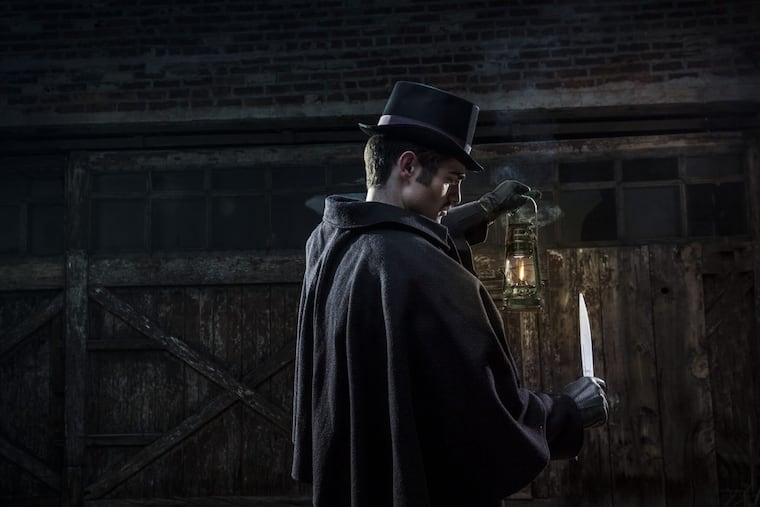Did serial killer H.H. Holmes escape his Philly execution, and was he also Jack the Ripper?
Holmes' great, great grandson sets out to prove the connection in an eight-part History Channel series, "American Ripper."

Imagine trying to persuade the world that your great-great-grandfather was not only one notorious serial killer, but actually two.
Jeff Mudgett, a former lawyer, contends that his great-great-grandfather Herman Webster Mudgett, better known by his alias H.H. Holmes, escaped execution in Philadelphia after confessing to 27 murders (but considering his penchant for inconsistent confessions and talent for misdirection, some biographers count more than 200 victims). Erik Larson's 2003 best-selling book, The Devil in the White City, was based on Holmes exploits.
But here's the kicker: He contends that during Holmes' U.S. murder spree, he fled to London, where he continued his path of murder en route to earning another nickname: Jack the Ripper.
Despite your better judgement, I implore you to suspend your disbelief. Mudgett's argument is well-researched, carefully constructed, and compelling. Spread out over the eight-episode History Channel series American Ripper, which premieres at 10 p.m. Tuesday, Mudgett travels the world hunting for clues, such as the book Holmes wrote while doing time in Moyamensing Prison. The big reveal: exhuming Holmes body from a cemetery right outside of Philadelphia.
To his credit, Mudgett is self-aware. "I've been debating critics for the past two decades," he says in the first installment, identifiable by a shaved head, wire-frame glasses, and patch of hair at his chin. "But it hasn't steered me away from my theory, because I know the evidence is out there to prove it."
His investigation is given a certain amount of credence by Amaryllis Fox, a former CIA criminologist, who seems smart as a whip.
Holmes was the man who built a "House of Horrors" in Chicago, where he tortured and murdered unsuspecting victims between 1886 and 1894. But not until he murdered a business partner in Philadelphia did police discover the extent of his crimes.
Holmes was executed May 7, 1896, in a public event at Philadelphia's Moyamensing Prison. Witnesses said he maintained his cool to the very end, even telling the executioner not to rush. The Inquirer reported that it took Holmes more than 15 minutes to die.
Holmes had left specific instructions for his burial. He was to be laid in a pine box, and the box was to be filled with concrete, buried 10 feet in the ground, and covered again with concrete.
Despite the elaborate burial, rumors started swirling that he had swapped another convict to be hanged in his place, and he went free.
A Delaware County judge this year gave the go-ahead to exhume the remains of H.H. Holmes, in a court order dated March 9. The Archdiocese of Philadelphia, which owns Holy Cross Cemetery in Yeadon where the body was located, confirmed that the exhumation was to take place. On Friday, NBC10 in Philadelphia showed TV footage of a front-end loader removing dirt from a grave at Holy Cross Cemetery. It could not be verified that exhumation was Holmes'.
There are some issues with Mudgett's case. Mainly, there is no conclusive proof that Holmes traveled overseas during the Ripper murders in the late summer and fall of 1888. And news accounts at the time, including the pages of the Philadelphia Inquirer, meticulously reported Holmes' execution.
"I have absolute confidence," Larson told the AP, "the body in that grave is Holmes'."
Mudgett has faced these arguments and discussions and issues before. In the History Channel series, he's going to try to persuade the world that his ancestor not only made another name for himself across the pond, but he also escaped his fate.
Remember, this is entertainment.
So sit your family around the TV, and try not to kill each other.
American Ripper, 10 p.m. Tuesday, History Channel
The Associated Press contributed to this report.